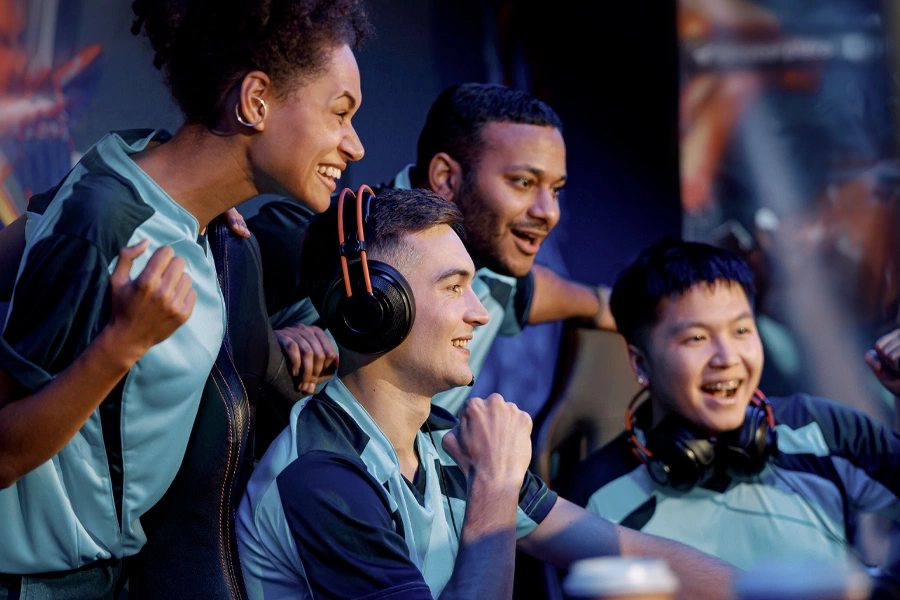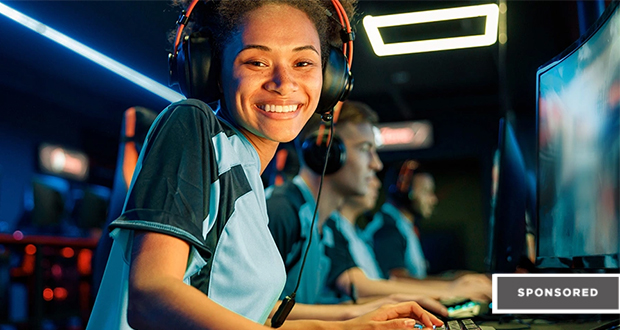In a world where digital prowess is as crucial as academic knowledge, the concept of integrating esports into education is gaining momentum. Esports, a form of competitive video gaming, is not just about entertainment; it's a novel way to develop essential managerial skills in younger generations. Read further to explore how the strategic and team-oriented nature of esports can be a playful yet effective tool for nurturing leadership, teamwork, and decision-making skills among primary and secondary school students.
Esports: A Brief Overview
Esports, or electronic sports, refers to the world of competitive, organised video gaming where individuals and teams compete in popular games that range from real-time strategy and fighting to multiplayer online battle arenas. Its rise to prominence among the youth is undeniable, often drawing parallels with traditional sports in terms of teamwork, competition, and skill. Unlike casual gaming, esports is characterised by its structured format, rule sets, and professional-level play, making it a unique blend of entertainment and skillful engagement.
Developing Managerial Skills through Esports
In the virtual arenas of esports, players are not just gamers; they are part of a team, each with a role that demands specific skills akin to managerial capabilities. First and foremost, teamwork is at the heart of every esports game. Players learn to collaborate, understanding each member's strengths and weaknesses to devise winning strategies. This environment mirrors the dynamics of a professional workplace, where teamwork is essential for success.
Leadership is another critical skill honed in esports. Team captains or lead players often emerge, taking on the role of guiding and motivating their team, akin to a manager in a business setting. They make pivotal decisions during games, which develops their decision-making abilities under pressure.
Strategic planning is equally crucial. Esports athletes analyse their opponents, plan game strategies, and adapt to new situations on the fly. This level of strategic thinking enhances their ability to forecast, plan, and execute - all vital aspects of managerial strategy.
Communication is the glue that holds these elements together. In the fast-paced world of esports, clear, concise communication is paramount. Players learn the importance of articulating strategies, providing constructive feedback, and ensuring that every team member is on the same page.
Educational Benefits Beyond Managerial Skills
The learning from esports extends beyond managerial skills. Problem-solving and critical thinking are continuously engaged as players navigate complex game scenarios. These skills are universally applicable and highly valued in academic and professional settings.
Moreover, esports also contributes to education in technology, mathematics, and languages. Understanding game mechanics often involves mathematical concepts, while technology literacy is a given in this digital sport. Additionally, as esports is a global phenomenon, players often find themselves communicating in English with peers from around the world, enhancing their language skills.
It's important to maintain a balanced approach to esports. Just like any sport, it should be part of a broader educational program that includes physical activities and emphasises the importance of a non sedentary lifestyle.
Esports in the Classroom: A New Educational Tool
Recognising the potential of esports, some schools have begun to incorporate it into their curricula. This integration allows educators to guide students in healthy gaming habits while harnessing the educational benefits of esports. Teachers can facilitate discussions on strategy, teamwork, and even the business aspects of the esports industry.
This innovative approach to learning also opens up new avenues for student engagement. Students who might not be interested in traditional sports or certain academic subjects can find their passion and a sense of belonging in the esports community.

Success Stories and Future Prospects
There are numerous success stories where esports has positively impacted education. For example, certain schools have reported increased engagement and improved teamwork among students participating in esports programs. As the industry grows, so do the career opportunities it presents, not just in playing but also in related fields like game development, event management, and content creation.
Conclusion
Esports in education is more than just playing games; it's about cultivating essential life skills in a format that resonates with the younger generation. By embracing esports, educators can provide a platform for students to develop managerial skills, engage in team-based learning, and open doors to future career paths. It's time to recognise the educational power of esports and its role in shaping the leaders of tomorrow.
Check out our Acer Hub for more education content
Contact us for a Technology Consultation
We can help you determine which devices in our education range are best suited to your students, and your teachers.
Email: [email protected]
Do you have an idea for a story?Email [email protected]
 Education Review The latest in education news
Education Review The latest in education news

